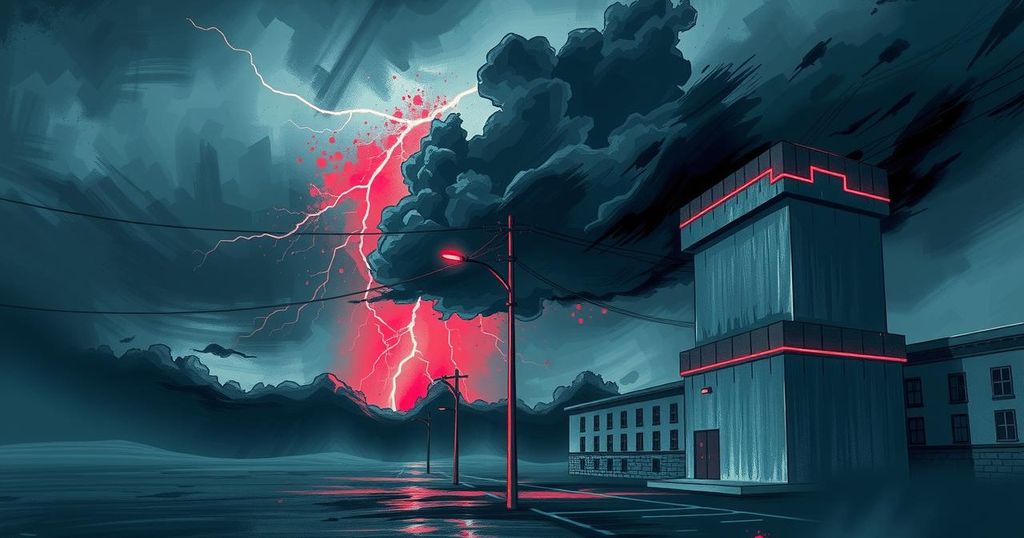On March 12, Buenos Aires experienced a violent crackdown on pensioners and other protesters opposing social security cuts, ordered by President Milei. Police used excessive force, resulting in numerous injuries and arrests. The situation reflects the government’s escalating repression against dissent and the struggle for retirees’ rights, with upcoming protests expected to draw even larger crowds.
On March 12, a significant protest occurred in Buenos Aires, where thousands of pensioners, workers, and soccer fans gathered in Congress Plaza to oppose cuts to social security pensions. The demonstration turned violent when federal and municipal police, acting under orders from President Javier Milei’s administration, brutally attacked the crowd. This incident recalls the brutal crackdowns of December 2001, highlighting a severe state repression reminiscent of Argentina’s economic crises.
The protests are part of a weekly campaign by retirees demanding the reversal of social security cuts, restoration of medical benefits, and inflation protection. Faced with austerity measures from the far-right Milei administration, the living standards of retirees have dramatically declined. The most recent rally saw an increase in participation, including transit workers from Buenos Aires joining the pensioners in their cause.
Security Minister Patricia Bullrich deployed over 1,000 police to the protest site one and a half hours before the rally began, with the intention of deterring attendees. The confrontation escalated into a violent clash as police utilized rubber bullets, tear gas, and water cannons against the demonstrators. Graphic images emerged, including instances of police provocation, with some officers allegedly attempting to incite vandalism by abandoning police vehicles.
The attack on pensioners resulted in numerous casualties, with over 670 individuals injured and 114 arrested. Although the detained were released after several hours, they now face potential charges. Among those injured was 87-year-old Beatriz Blanco, who was assaulted by police. Additionally, press photographer Pablo Grillo suffered severe head injuries from a tear gas grenade and remains in serious condition.
As the protest continued, demonstrators employed the powerful chant from 2001, “Qué se vayan todos!” (“All of them must go!”), targeting President Milei and the current administration. Alejandra Bartoliche, vice president of the Graphic Reporters Association (aRGra), condemned the ongoing targeting of the press and advocated for press freedom according to constitutional rights. She noted that a firearm, banned in 2010, was again used against Grillo.
Bullrich has been criticized for revoking the ban and reinstating repressive measures akin to the Security Doctrine of the Cold War, which permitted excessive force against protesters. In demonstrations of solidarity, hundreds of journalists in Uruguay protested in support of the retirees, while press photographers in Buenos Aires highlighted the need for accountability and an end to police violence.
The Milei administration anticipates larger protests on March 19, involving more unions and political supporters, prompting preparations for further repression. The administration’s stance remains firm, with both Milei and Bullrich pledging to confront demonstrations with an “iron fist.” Milei recently disparaged retirees, framing them as problematic, while his administration’s actions reflect a troubling shift toward authoritarian governance amid economic turmoil in Argentina.
The recent violent crackdown on protesters in Buenos Aires underscores the government’s increasingly repressive measures against dissent, particularly aimed at retirees challenging social security cuts. The significant injuries sustained by demonstrators and press members indicate a troubling state of civil rights under the Milei administration. As calls for change intensify, government officials are preparing to bolster their response to anticipated larger protests. Citizens’ rights to free speech and assembly face grave challenges, highlighting the need for vigilance and advocacy in protecting democratic freedoms.
Original Source: www.wsws.org




